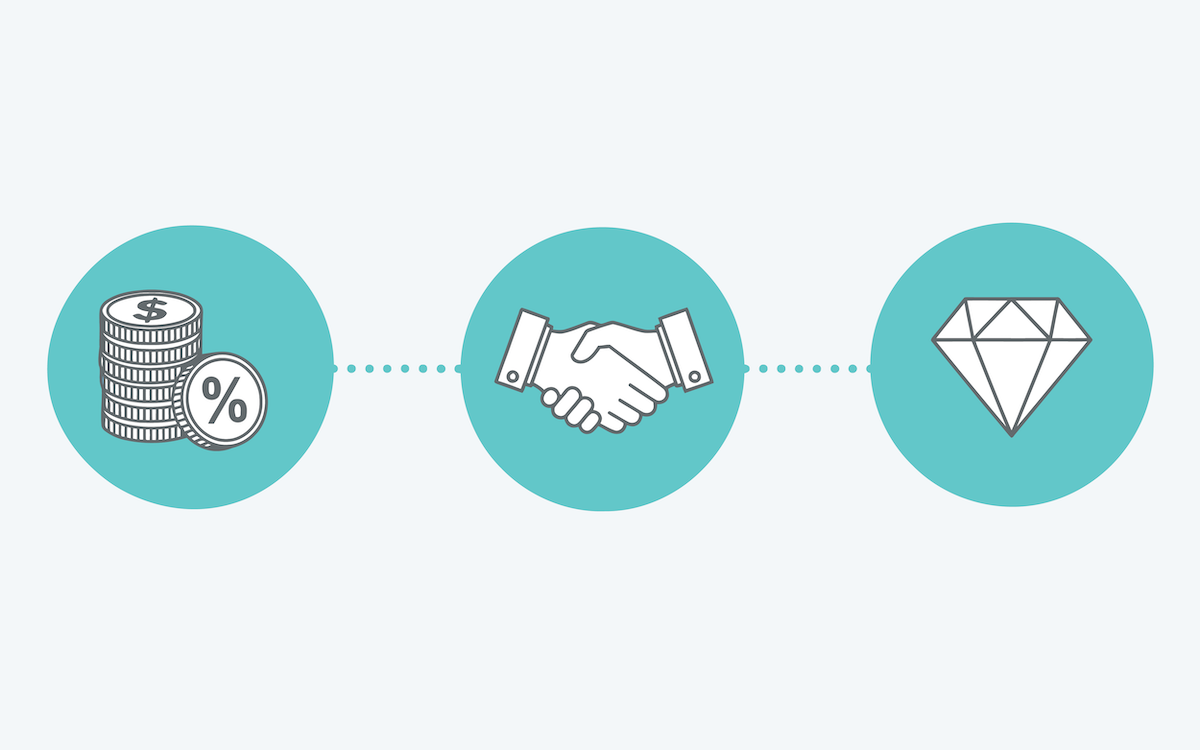In many of our sales training programs, attendees will ask, “What’s the difference between price, budget, and perceived value?” These are three concepts that guide customer behavior when making a purchase.
It’s important to understand the differences in the minds of your prospects. This will help you position your solution in a way that makes it attractive to price-sensitive buyers.
Even price-sensitive buyers care about value, not just the lowest price. They’ll pay more if you can demonstrate clear ROI, reduce risk, provide better service, or offer strategic advantages. The key is proving the price is justified by tangible business outcomes.
What’s a Price-Sensitive Buyer?
A price-sensitive buyer is a customer who prioritizes cost considerations when making purchasing decisions for their company. B2B price sensitivity works differently from consumer purchases because the stakes and decision-making processes are more complex.
These customers may work at small businesses or startups with limited capital; companies in low-margin industries (retail, manufacturing); or organizations going through cost-cutting initiatives. But they share these characteristics:
- Focus on ROI and Total Cost of Ownership
These buyers carefully evaluate not just upfront costs but ongoing expenses, maintenance, training, and potential savings. - Competitive Quotes
They typically solicit proposals from several vendors to compare pricing and negotiate better terms. - Budget Constraints
They work within strict departmental or project budgets and need to justify every expense. - Volume Negotiations
They leverage bulk purchasing power to demand discounts or better payment terms. - Sensitivity to Economic Conditions
During downturns or tight quarters, they become even more cost-conscious.
Sales Concept 1: Price
Price is the amount of money, time, effort, or emotional investment a product or service costs. In the absence of value, which I’ll talk about in a moment, every single purchase devolves into a question of price. And, as we all know, you don’t want to sell on price.
Sales Concept 2: Budget
Budget is the amount of money your prospect has set aside for a purchase. This number may be flexible, but not always. It’s important to keep in mind that, in the B2B space, additional budget dollars can typically be found when the seller proves sufficient value.
Sales Concept 3: Perceived Value
Perceived value is what a customer believes a product or service is worth, based on their subjective judgment rather than the actual cost or objective quality. Two customers can look at the same product and see a completely different value based on their needs, preferences, and circumstances.
Value is the customer’s assessment of the benefits they’ll receive compared to what they’re giving up (usually money, but also time and effort). Importantly, perceived value isn’t about what something objectively is—it’s about what the customer thinks it is.
The amount of value your prospects perceive is directly proportional to how well you convey the benefits of your products and services related to their wants and needs.
Perceived value is the most important of all three sales concepts because it often governs price and budget. When perceived value exceeds price, customers buy. When price exceeds perceived value, they don’t.
If your value proposition offers sufficient benefit to your customers, they will increase their budget and the amount they’re willing to pay for your solution.
Focus on a Value-Based Selling Approach
Because of the importance of perceived value, astute salespeople use a value-based selling approach. This is a sales strategy that focuses on communicating and providing value to prospects and customers throughout their decision-making process.
These sales professionals position themselves as trusted advisors, giving advice and insight. They focus on value before they talk about price or the way their products or services fit into a budget.
The more value a customer believes they are getting from a purchase, the easier it will be for them to make room in their budget for the purchase and accept a higher price.
Keep in mind that, when you’re dealing with large corporations or individual customers that have a very rigid budget, they may not be able to adjust their budget no matter how much value you add.
If you are unable or unwilling to come down on your price to accommodate an inflexible budget in a B2B selling situation, you can find someone with more budget control at the organization or you can wait and try your value proposition again to see if your customer is more willing to adjust their budget.
The difference between price, budget, and perceived value has a big impact on how you sell. Focus on value and you will find that issues relating to price and budget will take care of themselves.
Find out how a consultative sales process like IMPACT Selling® can help your sales team understand, build, and communicate perceived value.




